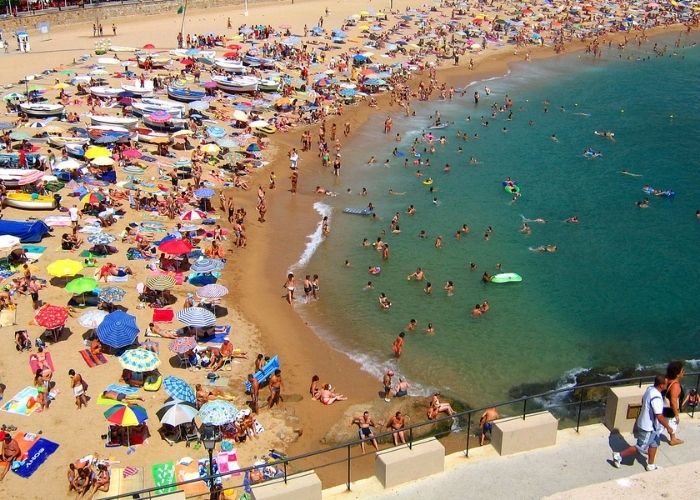MADRID – The loss suffered by the tourism sector in Spain as a result of the corona pandemic has now risen to around €116.4billion. Entrepreneurs in this sector therefore criticise the meager €11billion with which the government supports the retail trade and catering industry. The tourism sector accounts for 30% of all bankruptcies.
Of the €11billion, only €7billion will go to the autonomous regions. In turn, they can pay this out as direct financing to companies and the self-employed. A survey by the tourist alliance Exceltur shows that on a scale of 1-10 entrepreneurs from the sector rate this support plan with an average of 3.9. Not only do they consider the investment too low, but insufficient attention has been paid to the hardest hit sectors.
Too little priority for the tourism sector
A common complaint is the undervaluation for the tourism sector. It is one of the most important for the Spanish economy. In addition, sectors could benefit from the aid plan that do not even qualify for the temporary unemployment schemes ERTE.
Of all bankrupt companies in Spain since the start of the corona pandemic, 29% are active in the tourism sector. This relates to almost one in three. Until February this year, no fewer than 32,000 tourist businesses disappeared, according to Exceltur. It should be noted this does not include companies that have been granted a deferment of payment until December 2021. It also does not take into account companies for which bankruptcy proceedings have not yet been initiated. “If government financial aid does not reach the duped companies in the coming months, there will be a rapid upward trend in the growing number of bankrupt companies,” warns Exceltur Vice President José Luis Zoreda.
Most bankruptcies in history
If the current trend continues, according to the newspaper Vozpópuli, Spain will register the most bankruptcies in history this year. More bankruptcies were registered in the first quarter of this year than in the first quarter of 2013. This was the year in which Spain experienced a record number of bankruptcies. Looking at the activities of the tourism sector in the first quarter, there is a decrease of 80.4% compared to the first quarter last year.
Full recovery not before 2023
According to Exceltur, entrepreneurs in the tourism sector expect to resume no more than 52.5% of the activity from 2019 this year. This is based on a tourist season that can start in full from June, without national or European travel restrictions. A full recovery of activities is not expected before 2023, according to a majority of entrepreneurs.
Of the €116.4billion in revenue loss, the tourism sector lost €63billion due to the absence of foreign tourists. In comparison: that is more than the total export value of cars in 2019 (€44billion) or the import value of energy and raw materials (€55billion) in that year.
Since the start of the pandemic, 841,436 jobs have been lost in tourism, including workers with a temporary hiatus from the employment contract (ERTE). By March of this year, this number had decreased to 755,000 jobs lost.
Urgent support
To ensure the industry’s survival, tourism entrepreneurs are pushing for a continuation of the ERTEs, an urgent financial injection, an acceleration of the vaccination rate, and, at least for Spaniards, the lifting of travel restrictions.


